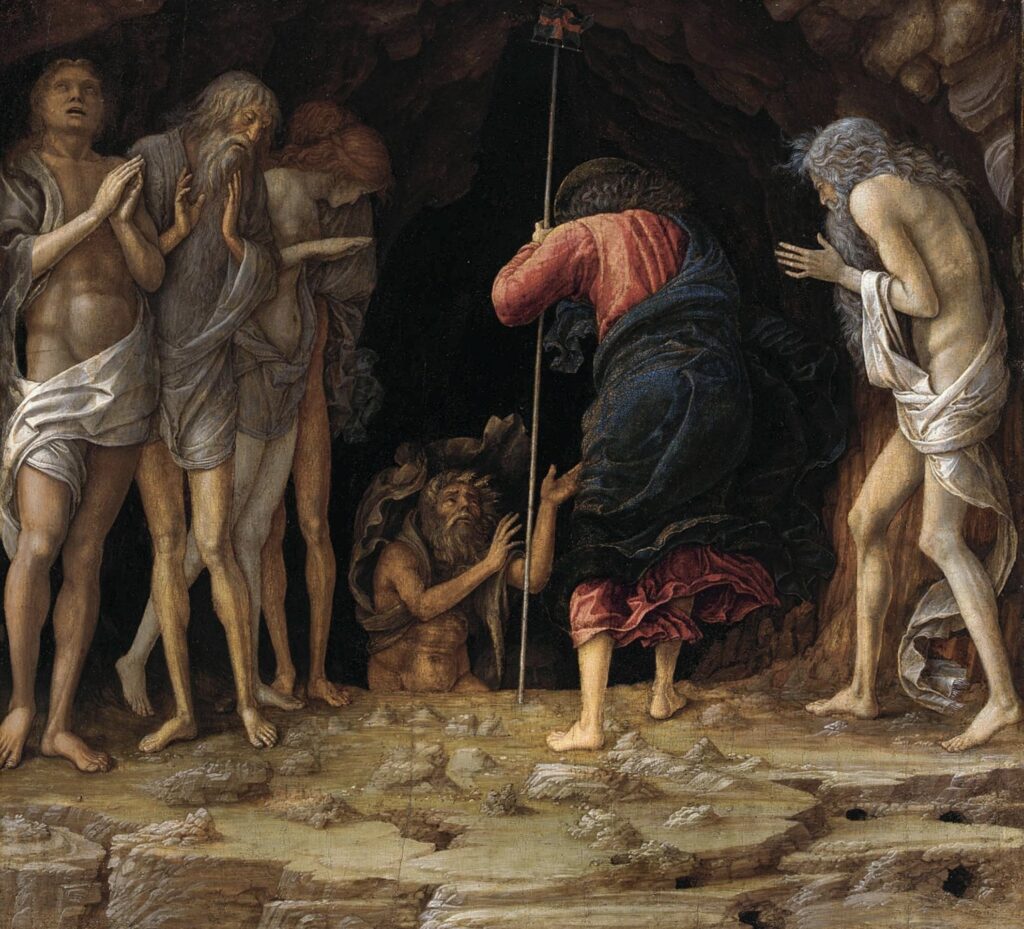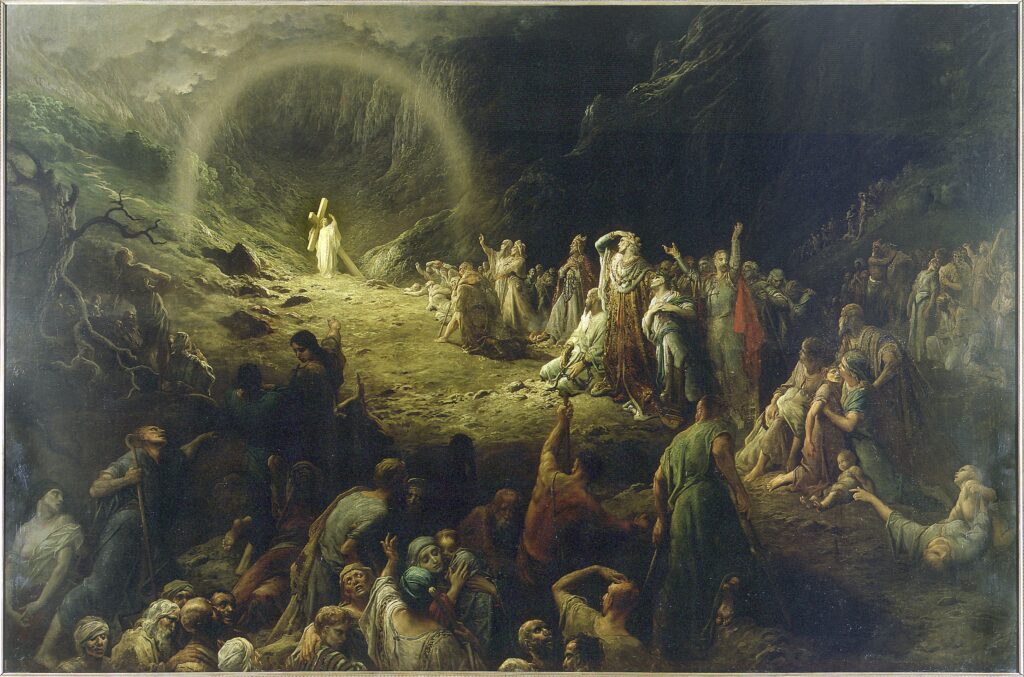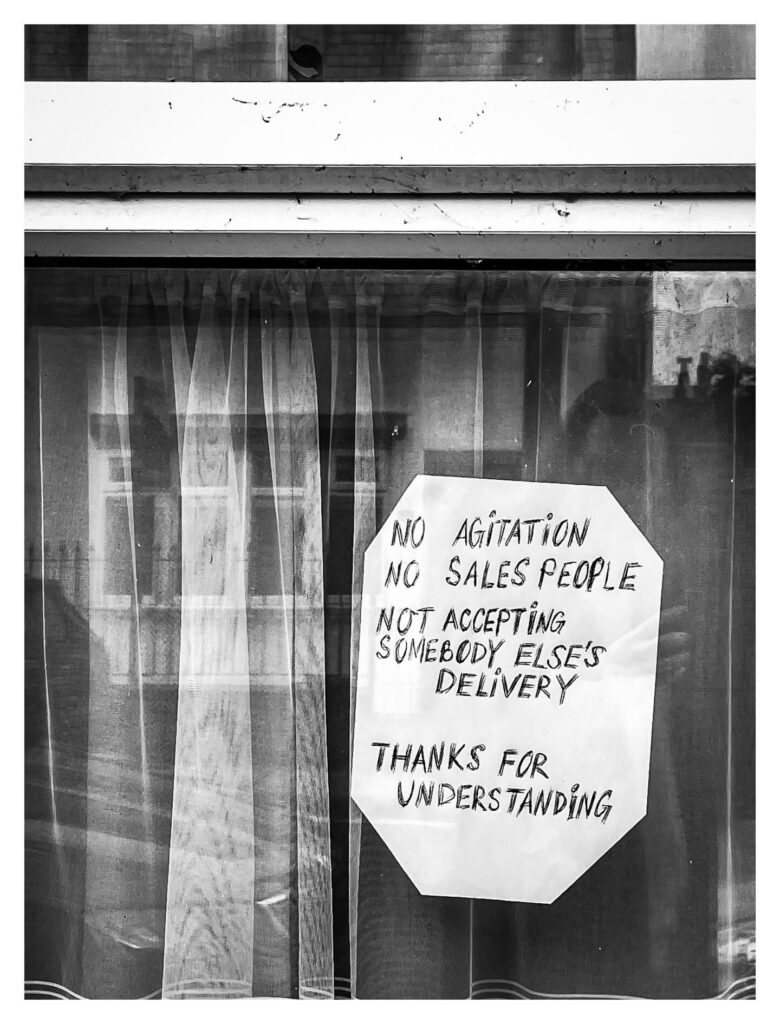The manners of the Christians
For the Christians are distinguished from other men neither by country, nor language, nor the customs which they observe. For they neither inhabit cities of their own, nor employ a peculiar form of speech, nor lead a life which is marked out by any singularity. The course of conduct which they follow has not been devised by any speculation or deliberation of inquisitive men; nor do they, like some, proclaim themselves the advocates of any merely human doctrines. But, inhabiting Greek as well as barbarian cities, according as the lot of each of them has determined, and following the customs of the natives in respect to clothing, food, and the rest of their ordinary conduct, they display to us their wonderful and confessedly striking method of life. They dwell in their own countries, but simply as sojourners. As citizens, they share in all things with others, and yet endure all things as if foreigners. Every foreign land is to them as their native country, and every land of their birth as a land of strangers. They marry, as do all [others]; they beget children; but they do not destroy their offspring. They have a common table, but not a common bed. They are in the flesh, but they do not live after the flesh. 2 Corinthians 10:3 They pass their days on earth, but they are citizens of heaven. Philippians 3:20 They obey the prescribed laws, and at the same time surpass the laws by their lives. They love all men, and are persecuted by all. They are unknown and condemned; they are put to death, and restored to life. 2 Corinthians 6:9 They are poor, yet make many rich; 2 Corinthians 6:10 they are in lack of all things, and yet abound in all; they are dishonoured, and yet in their very dishonour are glorified. They are evil spoken of, and yet are justified; they are reviled, and bless; 2 Corinthians 4:12 they are insulted, and repay the insult with honour; they do good, yet are punished as evil-doers. When punished, they rejoice as if quickened into life; they are assailed by the Jews as foreigners, and are persecuted by the Greeks; yet those who hate them are unable to assign any reason for their hatred.
To sum up all in one word — what the soul is in the body, Christians are in the world. The soul is dispersed through all the members of the body, and Christians are scattered through all the cities of the world. The soul dwells in the body, yet is not of the body; and Christians dwell in the world, yet are not of the world. The invisible soul is guarded by the visible body, and Christians are known indeed to be in the world, but their godliness remains invisible. The flesh hates the soul, and wars against it, 1 Peter 2:11 though itself suffering no injury, because it is prevented from enjoying pleasures; the world also hates the Christians, though in nowise injured, because they abjure pleasures. The soul loves the flesh that hates it, and [loves also] the members; Christians likewise love those that hate them. The soul is imprisoned in the body, yet keeps together that very body; and Christians are confined in the world as in a prison, and yet they keep together the world. The immortal soul dwells in a mortal tabernacle; and Christians dwell as sojourners in corruptible [bodies], looking for an incorruptible dwelling in the heavens. The soul, when but ill-provided with food and drink, becomes better; in like manner, the Christians, though subjected day by day to punishment, increase the more in number. God has assigned them this illustrious position, which it were unlawful for them to forsake.
If I Were The Devil
If I were the devil… If I were the Prince of Darkness, I’d want to engulf the whole world in darkness. And I’d have a third of its real estate, and four-fifths of its population, but I wouldn’t be happy until I had seized the ripest apple on the tree — Thee. So I’d set about however necessary to take over the United States. I’d subvert the churches first — I’d begin with a campaign of whispers. With the wisdom of a serpent, I would whisper to you as I whispered to Eve: ‘Do as you please.
To the young, I would whisper that ‘The Bible is a myth.’ I would convince them that man created God instead of the other way around. I would confide that what’s bad is good, and what’s good is ‘square.’ And the old, I would teach to pray, after me, ‘Our Father, which art in Washington…
And then I’d get organized. I’d educate authors in how to make lurid literature exciting, so that anything else would appear dull and uninteresting. I’d threaten TV with dirtier movies and vice versa. I’d pedal narcotics to whom I could. I’d sell alcohol to ladies and gentlemen of distinction. I’d tranquilize the rest with pills.
If I were the devil I’d soon have families at war with themselves, churches at war with themselves, and nations at war with themselves; until each in its turn was consumed. And with promises of higher ratings I’d have mesmerizing media fanning the flames. If I were the devil I would encourage schools to refine young intellects, but neglect to discipline emotions — just let those run wild, until before you knew it, you’d have to have drug sniffing dogs and metal detectors at every schoolhouse door.
Within a decade I’d have prisons overflowing, I’d have judges promoting pornography — soon I could evict God from the courthouse, then from the schoolhouse, and then from the houses of Congress. And in His own churches I would substitute psychology for religion, and deify science. I would lure priests and pastors into misusing boys and girls, and church money. If I were the devil I’d make the symbols of Easter an egg and the symbol of Christmas a bottle.
If I were the devil I’d take from those who have, and give to those who want until I had killed the incentive of the ambitious.
And what do you bet I could get whole states to promote gambling as the way to get rich? I would caution against extremes and hard work in Patriotism, in moral conduct. I would convince the young that marriage is old-fashioned, that swinging is more fun, that what you see on the TV is the way to be. And thus, I could undress you in public, and I could lure you into bed with diseases for which there is no cure. In other words, if I were the devil I’d just keep right on doing what he’s doing.
– Paul Harvey, good day.
It wasn’t the first time I felt that way, nor the last, but that energy was what I had been looking for. Leaping into risk and hoping for the worst would become a mantra for me during those bright nights. And sometimes, the worst arrived.
– Benjamin Roberts
What I wanted was to die among strangers, untroubled, beneath a cloudless sky. And yet my desire differed from the sentiments of that ancient Greek who wanted to die under the brilliant sun. What I wanted was some natural, spontaneous suicide. I wanted a death like that of a fox, not yet well versed in cunning, that walks carelessly along a mountain path and is shot by a hunter because of its own stupidity.
— Yukio Mishima, Confessions of a Mask
Design should not dominate people, it should help people.
– Dieter Rams
Ships sink not because of the water that surrounds them, but because of the water that gets into them.
Don’t let what surrounds you fill your soul and drag you to the bottom.
– Patriarch Paul of Serbia
But just being set in order, just being a certain thing, isn’t your identity. Your identity includes and is dependent on that web of relationships we were talking about; the way we fit into the rest of creation, including our fellow humans, but going beyond our fellow humans to all of the rest of creation; having that set of relationships, those connections, being right, being set right, being put in order and in their proper order. Without that, we can’t be internally set right. This is why, all through the Scriptures—famously in 1 John, but all through the Scriptures—you can’t love God and hate your neighbor. You can’t have things right with God, you can’t be justified and have things be out of whack at the same time. I don’t want to pick on him too much, but I’m sorry, Martin Luther. You can’t be just and a sinner at the same time. You just can’t.
So we have to always remember, and especially now during Great Lent, when we’re really focused on this—we’re focused on repentance—that this is not just a move inward. Everything that we said about paradise being within you and the kingdom being within you is absolutely true, but that doesn’t mean that you fold in on yourself and become a solipsist and become entirely self-focused, because finding yourself and finding what is within you is only going to happen through correcting that web of relationships. You’re going to find yourself in other people; you’re going to find God in other people.
And when we’re loving our neighbor and we’re setting things right and we’re making amends as part of our repentance and we’re putting everything around us back into order, that’s what’s going to cause all those things within us that are out of joint and out of place to slide back into place. That’s where things are going to come together, and we’re going to find out who we really are and what it really means to be a human, and thereby, by discovering what it means to really be human, to discover what it is to be like Christ and to become like God, which is what we call theosis and what salvation is really all about. It’s about becoming a son of God, as we’ve said before, becoming like him, becoming like Christ. That doesn’t happen for us all alone on our own. That happens for us as part of the Church, as part of a community of the faithful, both those who are alive with us here in this world now and those who have gone before. We all find salvation and restoration and paradise together.
But what this means is that wherever God’s paradise is, wherever the dwelling-place of God is, that place is going to be under siege by the enemies of God, by the spiritual enemies of God. That includes within us. This is part of the basis of our understanding of spiritual warfare. If the Holy Spirit is dwelling within us and we’re the temple of God and we’re the dwelling-place of God, then we become paradise within and the mountain of God within. Then that means there’s going to be a siege; we’re going to be under attack by God’s enemies. So this forms an important base, deeply connected to our understanding of spiritual warfare. The mountain of God is not some physical mountains, but it’s inside you. It’s part of your internal geography.
If now—and this is my idea—there were, instead of military conscription a conscription of the whole youthful population to form for a certain number of years a part of the army enlisted against nature, the injustice would tend to be evened out, and numerous other goods to the commonwealth would follow.
The military ideals of hardihood and discipline would be wrought into the growing fiber of the people; no one would remain blind as the luxurious classes now are blind, to man’s real relations to the globe he lives on, and to the permanently sour and hard foundations of his higher life.
To coal and iron mines, to freight trains, to fishing fleets in December, to dishwashing, clothes-washing and window-washing, to road-building and tunnel making, to foundries and stoke-holes, and to the frames of skyscrapers, would our gilded youths be drafted off, according to their choice, to get the childishness knocked out of them, and to come back into society with healthier sympathies and soberer ideas.
They would have paid their blood-tax, done their own part in the immemorial human warfare against nature, they would tread the earth more proudly, the women would value them more highly, they would be better fathers and teachers of the following generation.
– William James
Enduring software companies are generally designed to feel like boring utilities. Facebook, Twitter, Slack, Superhuman: they sacrifice character so that the user can fill the vessel with their own soul!
Visiting a cilliní will show you, better than any university research paper, why this is the case. The Roman Catholic church is unique in the Christian world in having believed in both Limbo and Purgatory, two notions unknown in the early Church and unreferenced in the Bible, and the notion that all humans automatically inherit grievous personal sin at birth was drummed into Catholics here and elsewhere. It explains, if you ask me, the sense of darkness that can sometimes permeate the historic Irish Church, especially in the period after the Reformation. I’m no theologian, but I can’t see how the God of the Gospels could have any truck with Christian mothers weeping as their dead babies are buried at night in unmarked graves.
Politics is often just sublimated religion.
The constant message from the outside world was: “Life is elsewhere.”
– Aleksandr Solzhenitsyn
In recent times it has been fashionable to talk of the levelling of nations, of the disappearance of different races in the melting-pot of contemporary civilization. I do not agree with this opinion, but its discussion remains another question. Here it is merely fitting to say that the disappearance of nations would have impoverished us no less than if all men had become alike, with one personality and one face. Nations are the wealth of mankind, its collective personalities; the very least of them wears its own special colours and bears within itself a special facet of divine intention.
– Aleksandr Solzhenitsyn
If AI companies are allowed to market AI systems that are essentially black boxes, they could become the ultimate ends-justify-the-means devices. Before too long, we will not delegate decisions to AI systems because they perform better. Rather, we will delegate decisions to AI systems because they can get away with everything that we can’t. You’ve heard of money laundering? This is human-behavior laundering. At last — plausible deniability for everything.
A lot of times our Western Christian friends present salvation as: Well, God has these laws, we’ve broken those laws, so he’s angry at us or he’s compelled by his attribute of justice—he has to punish those violations of the Law—so Christ comes to save us from that; so God has to save us from himself or save us from one of his attributes, save us from his own justice. But that’s not what the Scriptures say; the Scriptures say that Christ came to save us from our sins, because our sins are destroying us, our sins are turning us into this demonic monsters if we keep going down that path.
When action grows unprofitable, gather information; when information grows unprofitable, sleep.
We think we are creating the system for our own purposes. We believe we are making it in our own image… But the computer is not really like us. It is a projection of a very slim part of ourselves: that portion devoted to logic, order, rule, and clarity.
– Ellen Ullman, Close to the Machine: Technophilia and its Discontents
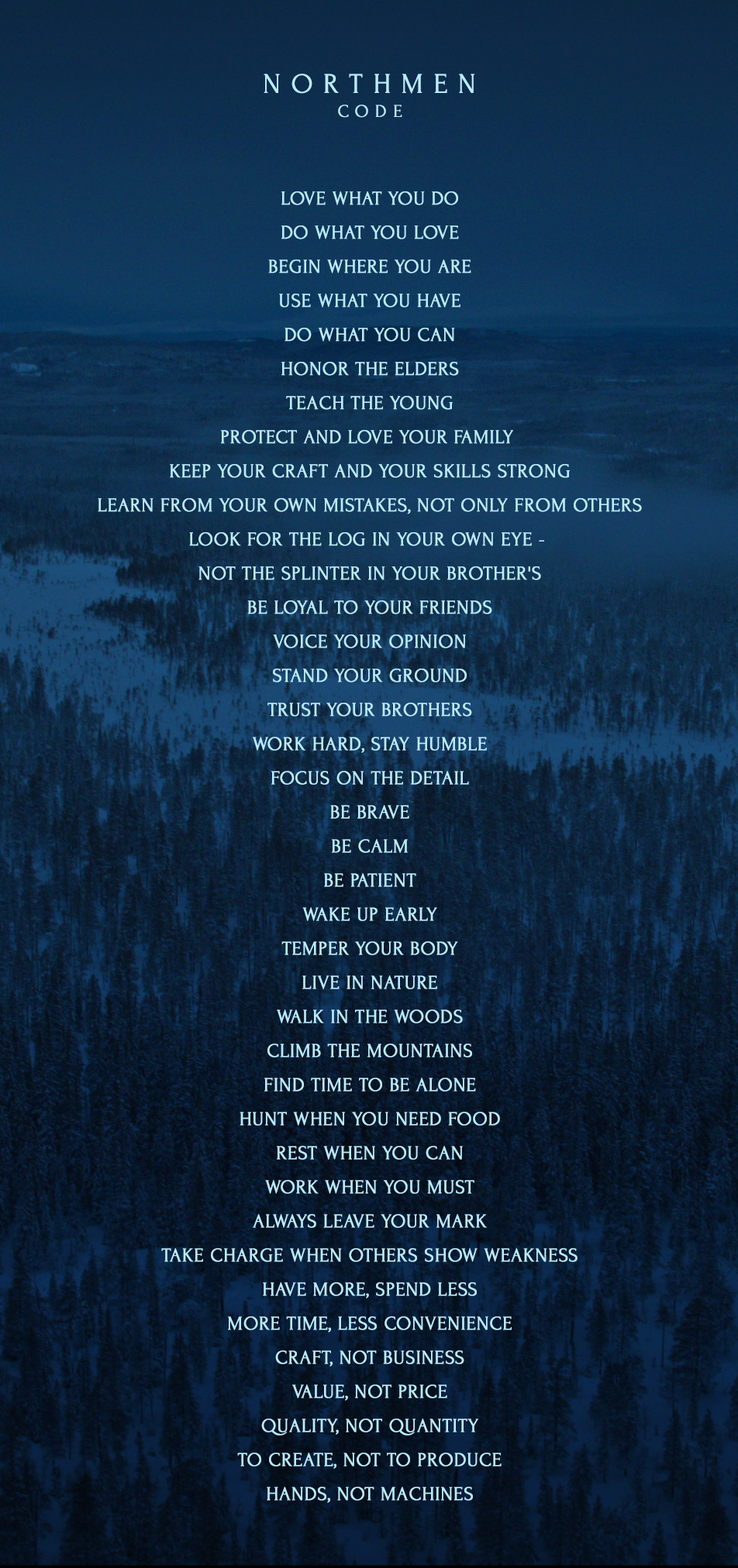
The web browser as a tool of thought
It’s not that far-fetched to imagine a scenario in which I visit a well-connected Roam graph, and realize that my browser has made just as many connections between their notes and my notes as the author of the Roam notes have across their information.
In the browser of the future, the boundary between my personal information and the wider Web’s information landscape will blur, and a smarter, more literate browser will help me navigate both worlds with a deeper understanding of what I’m thinking about and what I want to discover. It’ll remind me of relevant bookmarks when I’m taking lecture notes; it’ll summarize and pick out interesting details from long news articles for me; it’ll let me search across the Web and my personal data to remember more and learn faster.
How much thought?
To find out how much thought has gone into an opinion, ask the following questions:
- What evidence would prove X wrong?
- If you were a lawyer representing the other side, what’d your argument be?
- What do you want to be true?
- What’s the best critique of X you’ve come across?
- Who’s the smartest person who disagrees with X?
- Where doesn’t X apply?
- What are the tradeoffs?
- If X turned out not to be true, what do you think is the next best hypothesis?
Source: unknown
The Long Now Guiding Principles Rethought for Software
- Longevity: Software should be written as robustly as possible to maximize longevity. Consider edge cases, test comprehensively, and use statically typed languages. Avoid dependencies that are complex or brittle.
- Maintainability: Use frameworks that will make software easily maintainable by developers who come after you. Development should only require a minimal toolchain, and one that’s demonstrated a good history of stability and support.
- Transparency: Write code simply and elegantly. Use abstractions, but don’t abstract so heavily as to obfuscate. It should be obvious how code works not only to you, but for any others who might read it in the future.
- Evolvability: It should be possible to improve software over time. A good compiler and test suite should let future developers who aren’t deeply familiar with the existing code make those improvements safely.
- Scalability: To ensure that production software will work properly, write an extensive test suite and deploy the prototype in high-fidelity pre-production environments before taking it live.
Source: brandur.org/10000-years
The Long Now Guiding Principles
- Longevity: The clock should be accurate even after 10,000 years, and must not contain valuable parts (such as jewels, expensive metals, or special alloys) that might be looted.
- Maintainability: Future generations should be able to keep the clock working, if necessary, with nothing more advanced than Bronze Age tools and materials.
- Transparency: The clock should be understandable without stopping or disassembling it; no functionality should be opaque.
- Evolvability: It should be possible to improve the clock over time.
- Scalability: It should be possible to build working models of the clock from table-top to monumental size using the same design.
Source: brandur.org/10000-years
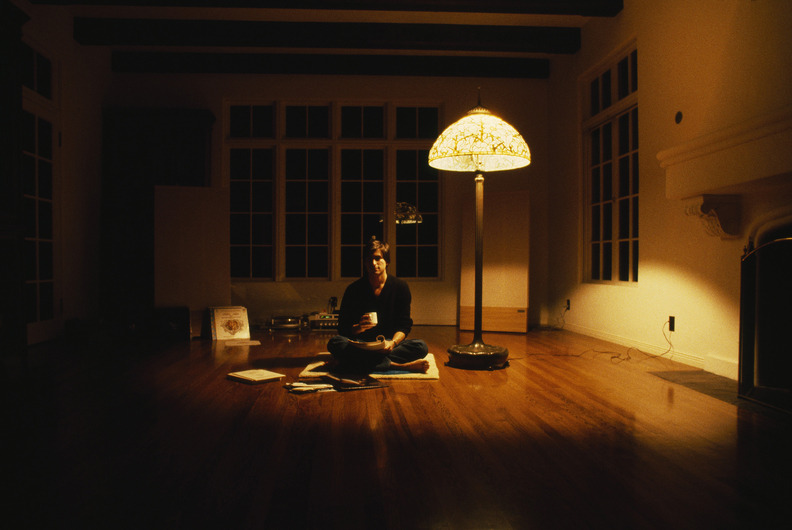
This was a very typical time. I was single. All you needed was a cup of tea, a light, and your stereo, you know, and that’s what I had.
— Steve Jobs
